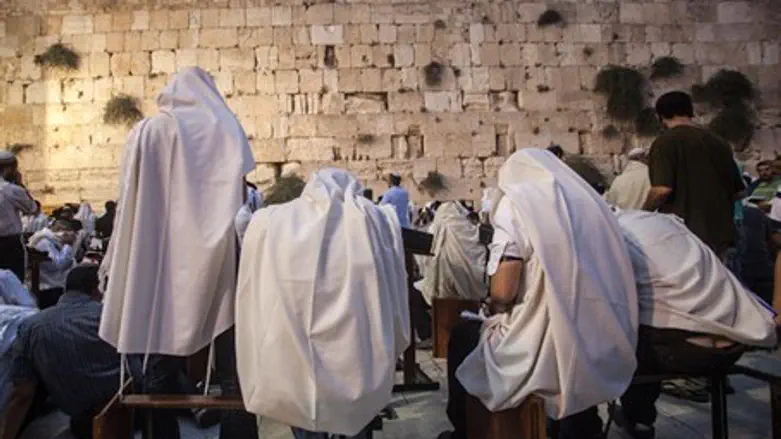
The Orthodox Union (OU) has developed an innovative approach to help Jews worldwide interpret kinnot, the elegies that are recited on Tisha B’Av to mourn the destructions of the Temples in Jerusalem as well as other tragedies throughout the centuries of Jewish history.
Kinnot are known to be quite difficult to understand, as most were written between the 6th and 10th centuries.
For more than 10 years kinnot programs have been available as webcasts, both live and on demand.
This year there will be two webcasts: one from Jerusalem and one from Boca Raton, Florida.
Rabbi Tzvi Hersh Weinreb, the OU’s Executive Vice President Emeritus, will speak from Jerusalem. The webcast will begin at 9:00 a.m. (Israel) and will last about four hours. It will be broadcast from the OU Israel Center, 22 Keren Hayesod St., Jerusalem.
Due to the time difference it will also be possible to view it at about 9:30 a.m. EST in the United States.
Rabbi Tzvi Hersh Weinreb has been explaining kinnot to audiences for more than 25 years. This year, his webcast will be entitled, “Tools for Recovery/Tefilot for Redemption.”
Rabbi Weinreb will also discuss several tragedies that are not covered in the standard kinnot. “The first is from the fourth century in Eretz Yisrael and is known as Mered Galus. The other is from the 17th century Poland and is known as Gezairot Tach V’tat (the Decrees of 1648-49),” he said.
Rabbi Steven Weil, Executive Vice President of the OU will speak from Boca Raton on the topic of “Confronting the Devastation.” His webcast gives viewers an opportunity to relive the tragedies of Jewish history throughout the millennia.
“Every year on Tisha B’Av Jews sit shiva again as they re-experience different tragedies beginning with the destruction of the Temples in Jerusalem through the Shoah and Islamic terror,” he says.
“This year we will use kinnot as a vehicle for confronting issues such as surviving a tragedy physically but remaining a ghost and a pale shadow of one’s former life. We will also address the attack against the theology of Judaism – not only attacks against Jews,” he says. “We will be discussing the attacks against Israel and Judaism in contemporary times in light of the kinnot that address these issues in historical as well as medieval times.”
“We recite, mourn and learn kinnot until we can daven Mincha at midday,” said Rabbi Weil. “This is a very fitting way to enrich this day of mourning and destruction.”